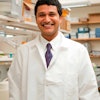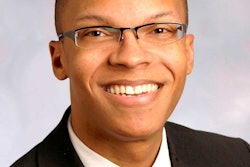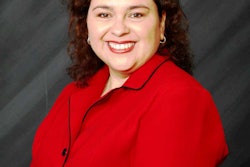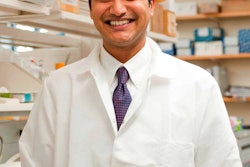Dr. Wayne A.I. Frederick’s childhood struggles with sickle cell anemia partially explain why he became a surgeon.
As a youngster, Frederick aspired to be the one to find a cure for the genetic blood disorder that primarily affects people of sub-Saharan African descent. Although he has turned his attention to oncology, he’s still committed to addressing ailments disproportionately affecting minorities.
Frederick is the associate dean of clinical strategy and operations at Howard University’s College of Medicine as well as chief of the general surgery division and interim director of Howard University Hospital’s Cancer Center. The focal point of his research is narrowing the disparity in cancer-care outcomes between African-Americans and the larger population, particularly in the area of breast cancer.
African-American women are less likely than White women to get breast cancer, but more likely to get it in their 30s and 40s and have a higher mortality rate.
Lack of access to quality health care for low-income minorities is often blamed for the disparity, but Frederick says other factors are at play.
“There has to be a biological basis. That requires an investigation for some of these things,” he says.
Early last year, Frederick, in conjunction with the university’s genomic center, began investigating the causes and genetic basis of triple-negative breast cancers. Diagnosed most frequently in Black women, triple-negative breast cancer is an aggressive subtype of cancer that does not respond to hormonal therapy.
Healing is in Frederick’s blood. Often prohibited from playing sports because of his illness, Frederick spent many of his childhood days shadowing his mother, a nurse, on visits with patients.
The Trinidad native was lured to Howard University as an undergraduate by the school’s rich tradition, as well as its Center for Sickle Cell Disease. “Howard is the Mecca of education in the Caribbean,” he says. “The first prime minister of Trinidad once described Howard as the Black Oxford.”
After graduating from Howard’s medical school at age 22, Frederick completed his post-doctoral research fellowship at the University of Texas MD Anderson Cancer Center in Houston and went on to the University of Connecticut Health Center, earning several teaching awards while at the school.
In 2006, Frederick returned to Howard as an associate professor in the surgery department. He is now director of the Drew-Walker Residents Forum of the Surgical Section of the National Medical Association, vice chairman of the District of Columbia Board of Medicine, and he currently sits as a reviewer of several scientific journals.
Dr. Robert Taylor, dean of Howard’s College of Medicine, marvels at how Frederick is able to take on administrative tasks at the medical school, “all while being one of the busiest surgeons, if not the busiest, at Howard University Hospital.”
Taylor adds, “Frederick has been an advocate on the national level on attacking breast cancer disparities and is one of the leading voices for early detection and treatment of breast cancer in minority populations.”
Frederick’s aim is to cultivate a new generation of physicians who not only treat people but change communities.
“One of the things I try to emphasize to young practitioners is that you have to understand people’s circumstances,” he says. “When you go into those neighborhoods where you have greater populations of low-income African-Americans, you’re not going to find a Whole Foods. What you will find is more fast food outlets and no safe places to exercise.”
They’ll also be treating patients who can’t afford the daily care that they need.
“The number of people that I see that come to this institution that don’t have health insurance, that have waited too late … they now have breast cancer that has broken through the skin. Almost every single time, it came down to resources. Access they didn’t have,” he says, although noting access is not the only issue driving disparities.
To improve that access, the cancer center touts the Rosemary Williams Mammoday program, which offers free clinical breast exams to uninsured patients who can’t afford them.
Title: Chief of the Division of General Surgery, Howard University Hospital; Interim director, Howard University Cancer Center; Associate dean of clinical strategy and operations, Howard University College of Medicine
Education: M.D.: Howard University College of Medicine,
B.S.: Howard University
Age: 39
Career Mentors: Dr. LaSalle Leffall (Howard Univ. College of Medicine), Dr. Raphael Pollock (University of Texas MD Anderson Cancer Center)
Words to Live By: Man’s greatest imperfection is his passive acceptance of his imperfection.















